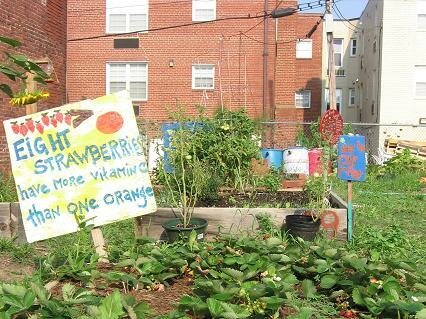by Margaret Feinberg
[Ed. note: This article is part of our series of weekly reflections, called Deep Down Things, published on Wednesdays.]
We’ve been in the throes of the trendy green movement for several years now. We’re learning to care for the environment in our own practical ways such as switching out our light bulbs, carrying our own bags to the grocery store, using less water, turning the thermometer down or up depending on the season, and even taking advantage of all those tax rebates for energy-saving appliances and
windows. I think it’s great. Every little bit helps.
But I think there’s something more. Truly caring the for the environment and seeing ourselves as stewards of God’s creation isn’t just about lowering our electric bills and using less water. It requires a heart change in the way we see ourselves and the surrounding world.
I’ve been reading The Art of the Commonplace: The Agrarian Essays of Wendell Berry, in which Berry writes:
We have lived by the assumption that what was good for us would be good for the world. And this has been based on the even flimsier assumption that we could know with any certainty what was good even for us. We have fulfilled the danger of this by making our personal pride and greed the standard of our behavior toward the world—to the incalculable disadvantage of the world and every living thing in it. And now, perhaps very close to too late, our great error has become clear. It is not only our own creativity—our own capacity for life—that is stifled by our arrogant assumption; the creation itself is stifled.
We have been wrong. We must change our lives, so that it will be possible to live by the contrary assumption that what is good for the world will be good for us. And that requires that we make the effort to know the world and to learn what is good for it.
Berry’s words sting my soul. Not just because they challenge me to learn and study harder. Not just because they call me to be more mindful about the land, including where my food comes from, my energy use, and my environmental impact, but because they call me to more mindful living in my relationship with God.
I think that’s one of the beautiful things about caring for the environment—it requires us to be more mindful of everything, including our spiritual lives.
What false assumptions do I have in my relationship with God?
What assumptions do I have in my relationships that what will be good for me will be good for others?
In what areas am I walking in arrogance and ignorance?
Jesus, forgive me of my pride and arrogance and ignorance. Open my heart and eyes and spirit to you and your word. Help me to love like you love, to care like you care. Amen.
A popular speaker at churches and conferences such as Catalyst, CreationFest, and YouthSpecialties, Margaret Feinberg was recently named by Charisma magazine as one of the “30 Emerging Voices” who will help lead the church in the next decade. She has written more than two dozen books and Bible studies including the critically acclaimed The Organic God, The Sacred Echo, Scouting the Divine (Zondervan) and their corresponding DVD Bible studies. Margaret lives in Morrison, Colorado, with her 6′8″ husband, Leif. When she’s not writing or traveling, she enjoys anything outdoors, lots of laughter, and their superpup, Hershey. Become her friend on Facebook or follow her on twitter: @mafeinberg.
This article was originally published at www.margaretfeinberg.com.







{ 1 trackback }
{ 0 comments… add one now }